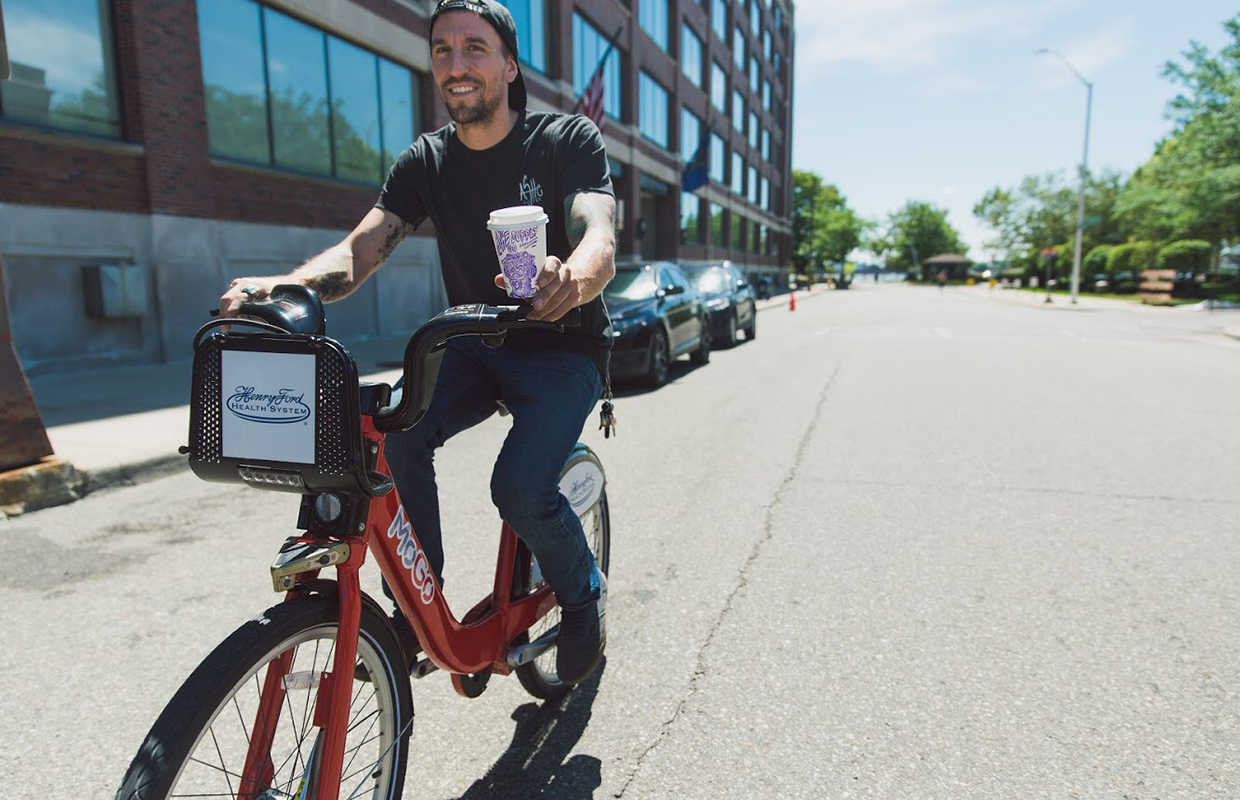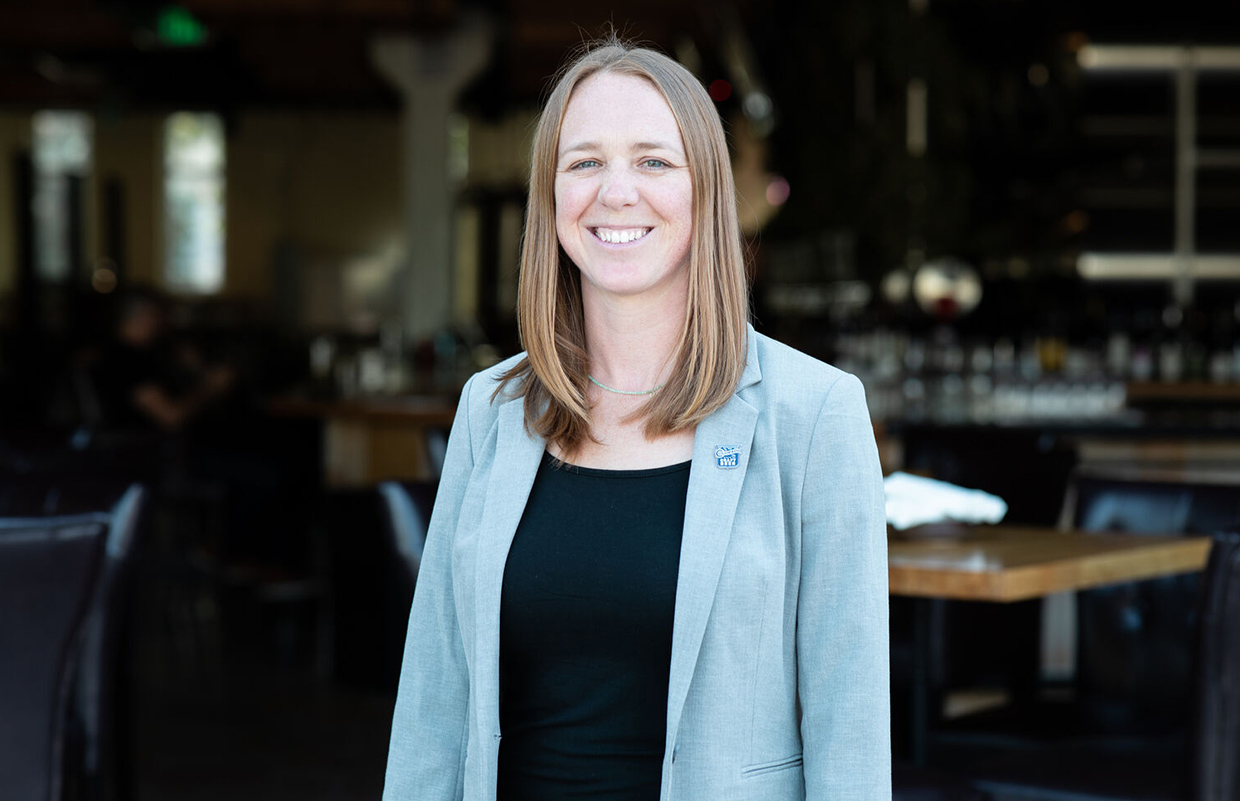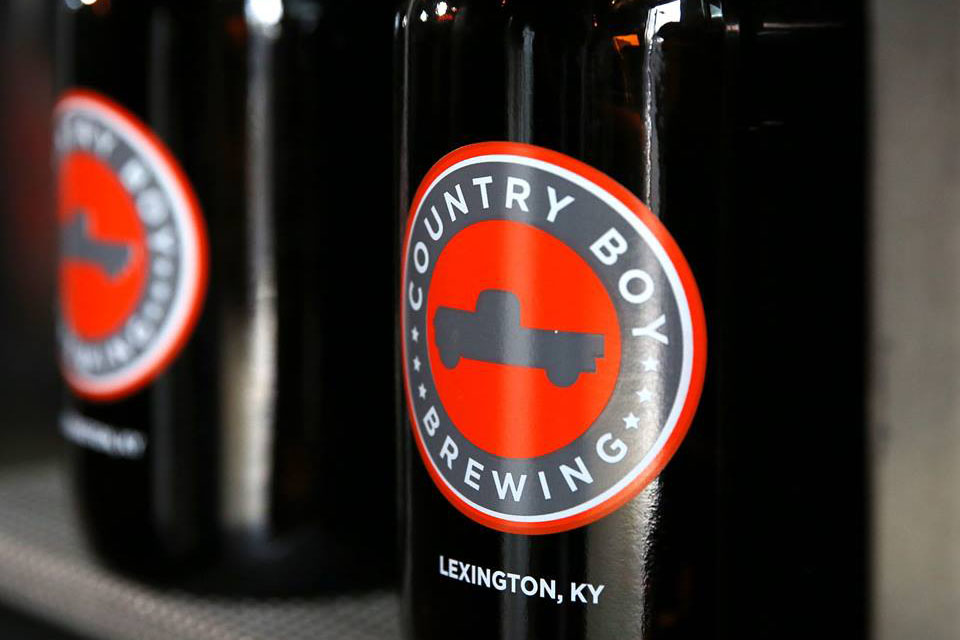
For some breweries, beer just isn’t the sole breadwinner. Branching into alternate revenue sources has helped grow the overall company. Take Eastern Market, for example.
The Detroit-based brewery — run by founder Dayne Bartscht — has expanded its umbrella into secondary beer brands, along with pizza, coffee, vegan donuts, and delivery services.
“It was more like a thought exercise,” he said. “I’ve always got crazy ideas and just keep a running list. The pandemic just brought them immediately up to the top.
“Some of them just took off and had a life of their own, to the point where a handful of them we’re still doing.”
The only business that was pre-COVID was the addition of ASHE Supply Co., which happened more than a year ago. The rest have come along since February.
Here are some of the additional projects that Eastern Market is working on.
Ferndale Project
The closure of Axle Brewing in June of 2019 allowed Eastern Market to open a second taproom at the location in suburban Detroit. Bartscht quickly saw that as a way to give EMBC a second brand and incubator for other types of business when opening in early 2020.
“One thing that was kind of insightful … is I always keep an eye on our labor costs, which is payroll over revenue,” he said. “I think when the pandemic hit, obviously, your denominator is going to go down. And so the reaction that almost every logical business made was, I need to decrease the numerator.
“I took a different approach. We were in a little bit of a weird spot because we had just opened Ferndale Project on February 22. I had just tripled our team and so I challenged myself: What if the numerator is fixed, then we need to find opportunities to increase the denominator and try to keep our labor costs at a reasonable rate.”
Bartscht felt a responsibility to his employees after just hiring them. A lot had been hired from Axle.
“I didn’t want everyone to have to have a brewery close, get laid off, and then get really excited because a new brewery is taking over and then get laid off again,” he said. And with Ferndale Project open for a couple weeks, they didn’t want to kill the momentum.
“We did have a little bit of runway, at least a month-long experiment, to see how it went,” he said.
Ferndale Project is a separate entity from Eastern Market, but Eastern Market is the parent company. It has a kitchen that has launched other enterprises.
“So we could get involved with coffee, some NA drinks, and potentially make sodas in-house,” he added. “Each of these entities starts out as just like a separate brand, within Ferndale Project. And then as they grow our thought is that we use Ferndale Project incubator, and then we allow these entities to become independently run.”
The newest project has been a Detroit-pizza company that has yet to be named, although the pizza is available at Ferndale Project. Recently, vegan donuts have been added from Dooped Donuts.
Coffee
“I’ve always realized that there are many synergies between coffee and beer,” Bartscht said. “Not only do you often use coffee in beer, but I think they’re both community hubs, they both have that emotional value that customers associate with them. And they’re both community-based businesses. And they also have very similar margins. You make a lot more selling coffee at a cafe or beer in a taproom than you do wholesale it or working with the distributor.”
ASHE Supply Co. became a part of the company before the pandemic, but because of the space that Axle Brewing had, having the coffee space before Ferndale Project opening made sense.
“Axle was a beautiful space. That was turnkey,” Bartscht recalled. “We have this amazing space, we’re in the middle of this awesome community that wants us to be here, and we can’t use it. So my friend AJ [Nichols], who is the president and founder of ASHE, had just closed a second location that was inside of a brewery. So he and I started talking.
What started as a pop-up at the soon-to-be brewery became a business deal instead.
“They got to the point where we were generating more revenue than at his other locations,” Bartscht said. “They have an awesome brand and their beloved in the community. But there’s also a lot of competition in Detroit now with coffee shops, so they were kind of looking for how they could keep chugging along.”
They put an agreement in place where Nichols would join the EMBC team.
“We’ve just kind of allowed that brand to grow organically and serve coffee up in Ferndale,” Bartscht said. “Over time, I’m looking forward to when hopefully there are less [pandemic] restrictions so we can start to grow the ASHE brand.”
Delivery
Peddler is a good example where Bartscht said they were in a pandemic and was already the largest self-distributing brewery in Michigan.
”We already had some delivery vehicles. We already had a sales team and we already had relationships with different bars and restaurants,” he said about the delivery service the company runs for their own products and other small businesses in the area within a 15-mile radius each day along with certain county deliveries farther away once a week. “We’re already driving to a lot of different locations. So Peddler was a natural extension of where we still self distribute all of our beer. It just makes a ton of sense to also drop off at 10 or 20 homes that have been ordered that day. ”
Bartscht feels there are “a ton of efficiencies,” in how it works.
“If you’re already going somewhere, adding three stops, only adds like 15 minutes to the route,” he said. “You can add 10 or 20 spots, and still have the same number of employees for the same amount of time.
“We’re almost like a logistics company. Now we have the software that integrates with our ordering system, and it optimizes routes and then customers get text alerts, and they can follow the driver on a map. The biggest thing is they get a text message when the driver is pulling up and then they’re always ready to go waiting at the porch. We can check IDs from a distance.
Barscht said he thought it would be cool to continue post-pandemic but now he feels it will have to stay because customers would be upset if they didn’t keep doing this post-pandemic.
“It’s definitely become a viable business that I’ve had on my radar but it would probably not come to fruition if we hadn’t been in a pandemic,” he said.
Bartscht shared even more on the Peddler service in the January/February 2021 issue of Brewer, out soon.




1 Trackback / Pingback